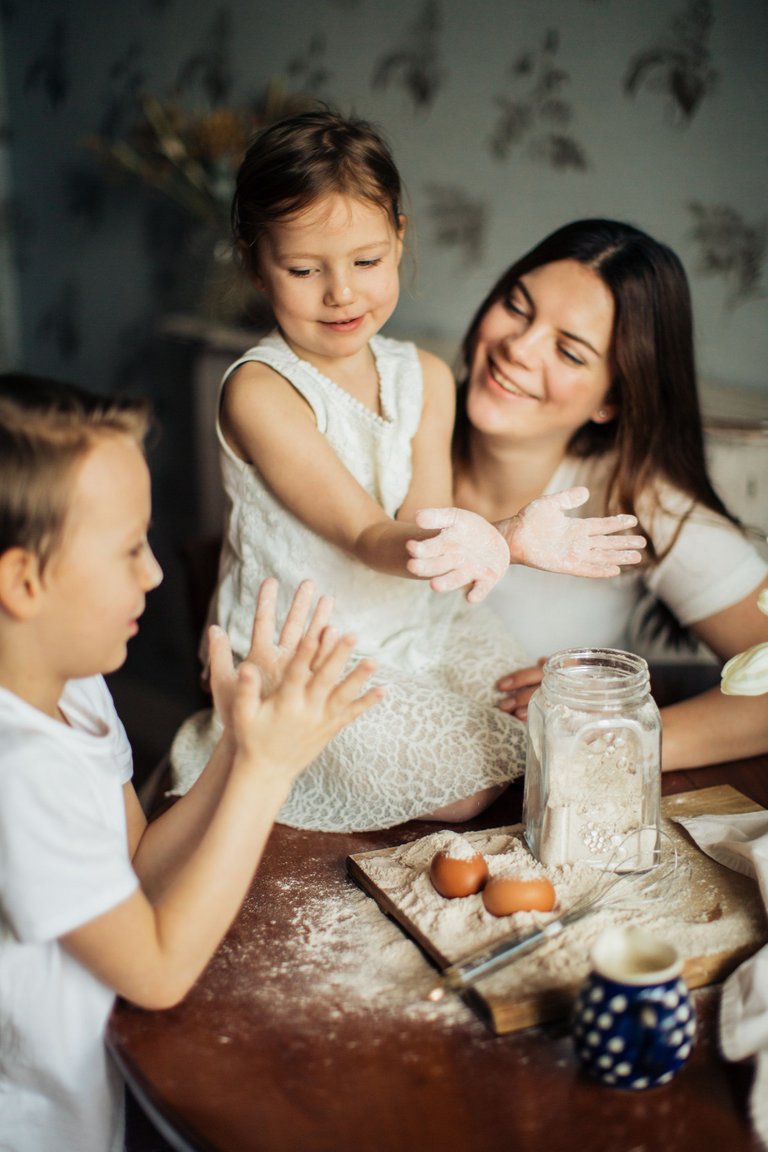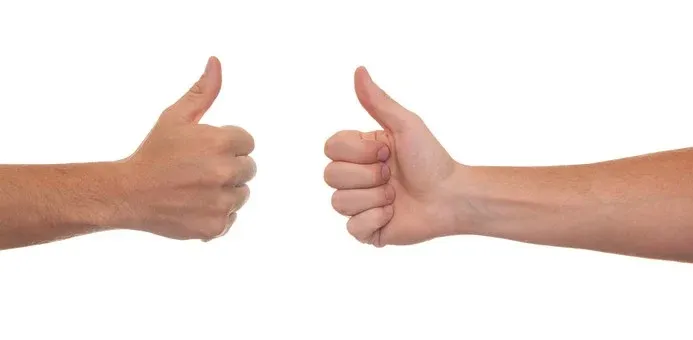

Cada uno de nosotros tenemos una manera diferente que nos identifica a la hora de hablar y, ¿Qué decir de nuestra manera de expresarnos con nuestros gestos? Muchas veces imitamos algunas expresiones tanto faciales como corporales.
Por ende, que es casi inevitable hablar sin hacer expresiones faciales y corporales, y quienes son muy expresivos de manera innata las hacen hasta sin darse cuenta. Por ejemplo: En mi infancia veía como los adultos usaban expresiones corporales que muchas veces no entendía y en muchas oportunidades no preguntaba a mi mamá que significaba, porque sencillamente me daba pena por temor a que fuera algo indebido y se molestará, lo que hacía era esperar que se diera el momento para poder identificar de qué se trataba y asociarlo con la expresión corporal que estaban haciendo.
Friends of motherhood, how nice to greet you and to be able to be with you for another week on this wonderful platform. As parents we learn something new every day that makes us think or reflect on what we do and say. The topic of this publication I reflected on something my daughter asked me and I wanted to share it with you.
Each of us has a different way that identifies us when we speak, and what about the way we express ourselves with our gestures? Many times we imitate some facial and body expressions.
Therefore, it is almost inevitable to speak without making facial and body expressions, and those who are very expressive innately make them even without realizing it. For example: In my childhood I saw how adults used body expressions that many times I did not understand and in many opportunities I did not ask my mother what it meant, because I simply felt sorry for fear that it was something wrong and she would get upset, what I did was to wait for the moment to identify what it was about and associate it with the body expression they were doing.


Por ejemplo, quizás estamos en familia y estamos hablando de algo, hacemos expresiones que quizás nuestros hijos, si están presentes y están en su edad de infancia, no entienden. Ellos emplean su propia imaginación para darle significado a esas expresiones. Trato este tema porque, esta semana, mi hija de seis años, me hizo una pregunta que me causó mucha risa y ella al verme reír tanto, pues terminó riendo también 😅. Ella me preguntó: Mami ¿Cuándo una persona se va a morir, se le va muriendo la cabeza? 😳. Y yo le dije y eso ¿Por qué me hace esa pregunta?, Me dijo: es que cuando la gente dice que se murió alguien hacen así, ¡imagínense usando esta expresión!: Ella se pasó uno de sus deditos por el cuello de forma horizontal. De verdad, que fue inevitable soltarme de la risa 😂.
For example, maybe we are in the family and we are talking about something, we make expressions that maybe our children, if they are present and are in their childhood age, do not understand. They use their own imagination to give meaning to those expressions. I bring up this topic because, this week, my six year old daughter, asked me a question that caused me to laugh a lot and when she saw me laughing so much, she ended up laughing too 😅. She asked me: Mommy, when a person is going to die, is his head going to die? 😳. And I told her: Why are you asking me that question, she said: when people say that someone is dying, they go like this, imagine using this expression: she ran one of her little fingers horizontally across her neck. Really, I couldn't help laughing 😂.

Pixabay de geralt

Muchas veces creemos que ellos no prestan atención lo que hablamos, pero no solo eso, sino también las expresiones que hacemos. Particularmente me da risa ver a mi hija como imita algunas de mis expresiones faciales cuando habla. Mi esposo en ocasiones le dice a ella mi nombre. Reconozco que los pequeños de casa son personitas a las que es fácil que se les adhiera un poco de la personalidad de sus padres. Por ello debo trabajar para que imite únicamente lo bueno de nosotros. Poco a poco, hija, irá adquiriendo su propia personalidad con el transcurrir del tiempo.
After laughing so much, I explained to him that it was a way of expressing himself and that it had become common when referring to dying. This situation made me think of the times that, perhaps, children at home or elsewhere see some expression being made and they understand it in their own way, until the moment comes when, because of their natural curiosity of age, it becomes easy for them to ask what it means.
Many times we think they don't pay attention to what we say, but not only that, but also to the expressions we make. I particularly laugh when I see my daughter imitating some of my facial expressions when she speaks. My husband sometimes calls her my name. I recognize that little ones at home are little people to whom it is easy for a little of their parents' personalities to rub off on them. That's why I have to work to get her to imitate only what is good in us. Little by little, daughter, she will acquire her own personality as time goes by.

Pixabay
de
Clker-Free-Vector-Images!

Bueno, mis apreciados colegas, papás y mamás de esta maravillosa comunidad, me despido de ustedes con mucho cariño esperando que atesoren a sus pequeños, ya que son un valioso regalo que tenemos que guiar de la mejor manera. Agradeciendo de antemano su tiempo dedicado a leer mi publicación, hasta otra bonita oportunidad. 🌷
In the meantime, let's keep in mind that they are always attentive to everything we do and say. And if our expressions, because of their innocent age, they do not understand it, they may give it the meaning that suits their imagination.
Well, my dear colleagues, dads and moms of this wonderful community, I bid you farewell with much affection hoping that you will treasure your little ones, since they are a valuable gift that we have to guide in the best way. Thanking you in advance for your time spent reading my publication, until another nice opportunity. 🌷

Está publicación fue traducida en DeepL
This publication was translated at DeepL
separador de Pixabay



